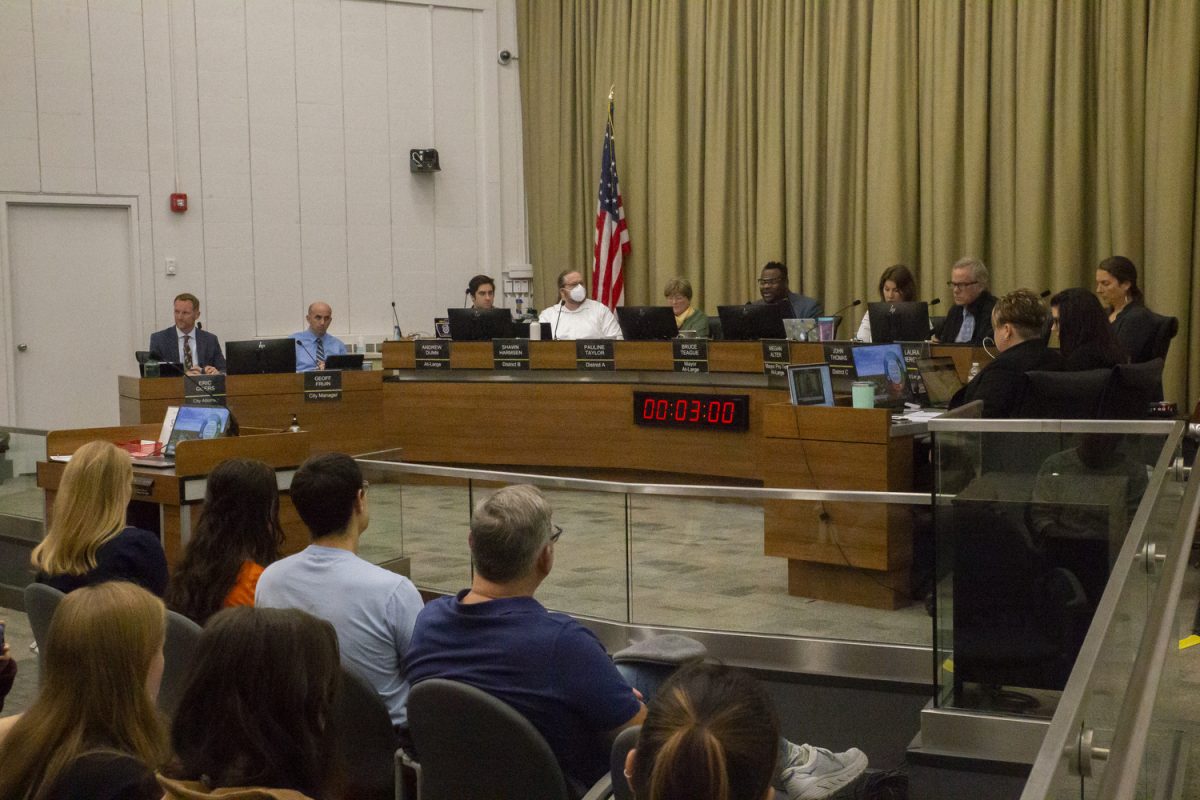The City of Iowa City officially adopted a series of amendments to its housing and zoning regulations in an attempt to increase housing supply and affordability.
The amendments focus on those goals by making housing design and zoning standards more flexible to allow increased density in the community, thus increasing the supply.
In the last few meetings in which these amendments were discussed, there was significant public comment from community members both for and against the amendments.
Those in opposition to the amendments have said they are concerned the increased density will disrupt the character of historic neighborhoods and will create an opportunity for landlords to build more expensive housing to turn a profit.
Those in favor of the amendments have said these changes are incremental and will not create a total disruption of neighborhood character. Some immigrant and refugee residents have come to meetings expressing support for these amendments because of how hard it has been for them to find affordable housing in Iowa City.
At the Oct. 17 city council meeting, Councilor John Thomas proposed changing the language of the amendments to require that half of a two-unit housing complex within the University of Iowa area be affordable.
His reasoning behind this change was to try to ensure that affordable housing was created as a result of the amendments instead of giving landlords further opportunities to increase rent. He proposed this same change at Tuesday night’s meeting, which failed again in a 4-3 vote.
Councilors in opposition said they did not foresee Thomas’ change making a significant impact on his concerns, and they did not want to make the change because it would restart the process of passing the amendments. Those who voted in favor of Thomas’ changes were Councilors Thomas, Pauline Taylor, and Andrew Dunn.
After Thomas’ changes failed to pass, the council then passed the original, unchanged amendments in a 5-2 vote. Thomas and Taylor voted in opposition.
Councilors start new amendment process
The Iowa City City Council started the process of passing housing regulation amendments related to increasing accessory dwelling units, or ADUs, to help increase housing supply.
An ADU, more commonly known as an in-law suite, is a smaller housing unit connected to or detached from a primary housing unit. The amendments related to these units aim to make it easier to build ADUs and allow them in more places in the city.
The council held its first consideration of these amendments on Tuesday night. To pass the amendments, the council must vote on the amendments in three consecutive meetings.
A particularly contentious portion of the ADU amendments is the owner-occupancy requirement. Currently, the owner of an ADU and its primary housing unit must live on-site to be able to rent out the ADU.
The amendments proposed eliminating this requirement to remove barriers to renting ADUs and thus accessing affordable housing, but this section was struck from the proposal presented to the council by the Planning and Zoning Commission at its Oct. 4 meeting.
The commission decided 4-3 to eliminate the owner-occupancy change because of concerns over landlords taking advantage of buying and constructing the cheaper ADU units and charging expensive rents for them.
On Tuesday night, city councilors discussed this requirement, with some in favor of keeping it and some wanting to remove it. Ultimately, the council passed the amendments as proposed by the Planning and Zoning Commission 7-0, meaning the owner-occupancy requirement would remain in the city code.
However, the council decided it would direct city staff to present an additional change to the ADU amendments for the Planning and Zoning Commission to vote on. This additional change would eliminate the owner-occupancy requirement in all city areas except the UI area to try to address the renting concerns and come to a compromise.
This change would be proposed to the Planning and Zoning Commission after final passage of the current ADU amendments, which is expected to be at the city council’s Dec. 12 meeting.



